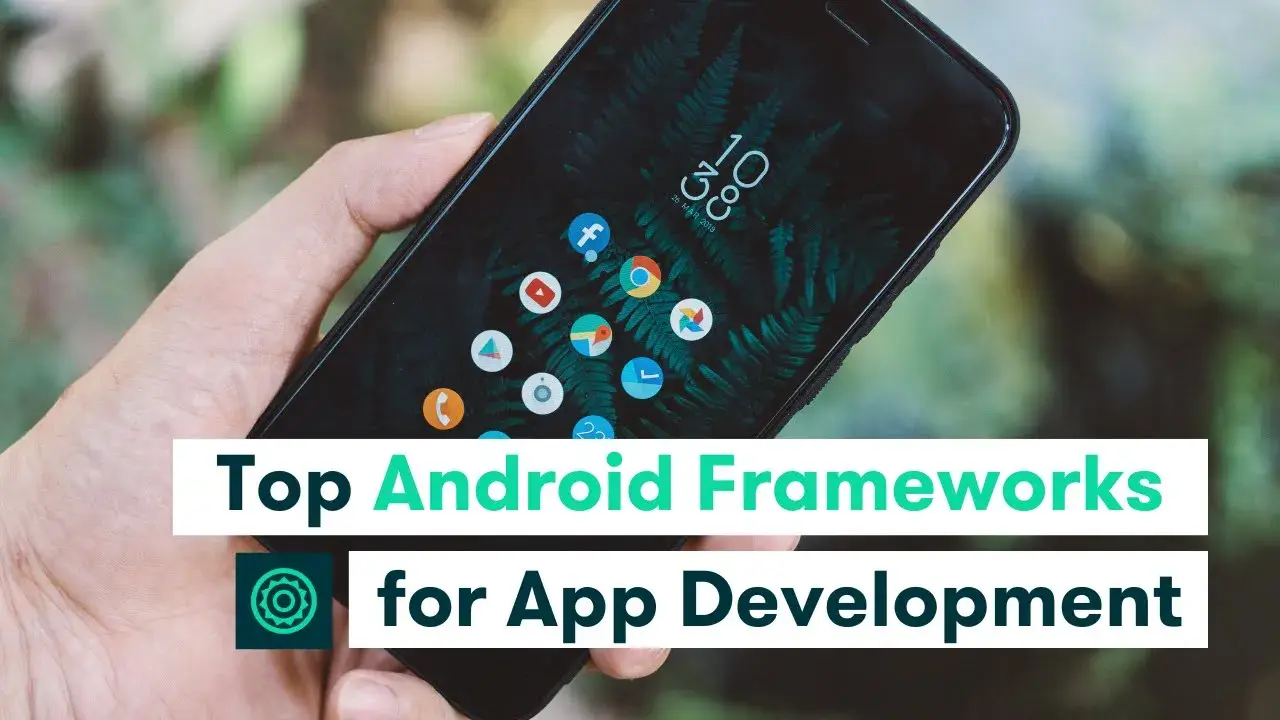
Android frameworks can greatly simplify the Android app development process and help organizations create native mobile apps and cross-platform apps that deliver near-native performance levels.
Android app development should be strongly considered by every organization interested in pursuing mobile app development. Why? The Android operating system is the most widely used operating system in the world.
As a result, organizations that are interested in reaching the widest possible global audience should develop Android apps. This post will examine the most popular Android frameworks and explain what makes them useful to Android developers.
The Best Frameworks for Android App Development
Android development frameworks can drastically reduce the complexities and time required to successfully develop Android applications. An Android framework not only streamlines the app development process but can also empower less experienced developers to create Android apps that look great.
As a result, Android development frameworks are widely used by experienced and beginner Android app developers. If your organization is looking for the Android framework most aligned with its Android app development requirements and skills, the top options to consider include:
- React Native
- Flutter
- Ionic
- jQuery mobile framework
- NativeScript
- Xamarin
React Native
Developed by the team at Facebook, React Native is a dynamic choice for Android app development. It enables developers to utilize the widely used web programming language JavaScript and React, a popular web development library, to build near-native apps.
The React Native framework is one of the most widely used because it excels at more than just Android development. React Native can be used to create cross-platform apps that deliver near-native levels of performance by using native components of each platform.
With React Native, you can write code once and use it on the iOS and Android platforms, which saves your organization time and money. In addition to its capabilities, React Native boasts an extensive community of online developers and access to a wide selection of third-party libraries.
Flutter
Developed by the team at Google, the Flutter framework is best known for its ability to help developers create visually stunning apps. Flutter is a flexible User Interface toolkit that transcends the Android platform and can deliver natively compiled applications for Android, iOS, web, and desktop operating systems from a single codebase.
Besides the ability to deliver aesthetically pleasing applications with rich User Interface components, apps built with Flutter exhibit near-native performance levels since Flutter code is compiled into native code.
Flutter is strongly supported by Google and has a fast-growing community of online developers and services. While not completely limited to Android app development, Flutter was created by and is strongly supported by the same company that develops the Android operating system.
Ionic
Ionic is an open-source framework that empowers developers to create mobile apps using the core web technologies, HTML, CSS, and JavaScript. Ionic is capable of more than hybrid app development.
Ionic also offers designers and developers many User Interface components and theme libraries to help them deliver polished application designs. In addition, Ionic integrates with Apache Cordova, allowing developers to access native device features while writing JavaScript code.
Finding skilled mobile app developers can be tricky, but web technologies are more widely known and taught. Ionic allows developers to build powerful mobile applications using the web technologies they are already familiar with.
jQuery Mobile Framework
The jQuery mobile Android framework might be one of the most under-recognized frameworks in this post. However, jQuery offers a strong solution that anyone interested in Android development should consider using.
The jQuery mobile framework is a touch-optimized development framework that can be used to craft mobile web applications that run on Android devices. Like Ionic, jQuery relies on web technologies, like HTML, CSS, and JavaScript, which are already widely known among developers.
In addition, jQuery is lightweight, which makes it an excellent option for simpler apps where efficiency is critical. Plus, jQuery offers developers a wide selection of User Interface widgets to choose from, which enables them to craft great mobile experiences without much effort.
NativeScript
NativeScript is an app development framework that allows developers to build cross-platform and hybrid apps that access native Android and iOS platform APIs. NativeScript might be the best Android framework for creating native experiences using JavaScript or TypeScript.
Few other Android frameworks offer developers direct access to Android’s native APIs. Access to these APIs enables developers to utilize native device features in their builds to deliver user experiences that rival native apps.
In addition, NativeScript offers development teams a rich ecosystem of plugins that can be used to extend the functionality of their Android apps.
Xamarin
Xamarin is an Android framework that enables developers to create cross-platform apps using .NET and C#. Xamarin is supported by Microsoft, which means it is constantly being updated with new features and capabilities.
Xamarin is the right Android framework for developers proficient in .NET or C#. This is a popular development framework because it allows developers to reuse the majority of their code between builds so your business can develop an app for iOS and Android at the same time.
Plus, Xamarin is able to access specific platform APIs to help your application deliver experiences that are typically reserved for native apps. Furthermore, Xamarin probably has the most robust IDE and is strongly supported by both Visual Studio and Visual Studio Code.
Final Thoughts
Choosing the right Android development framework can seem like a daunting task. There are several of the most popular options on this list. However, there are even more options beyond the frameworks covered here, although they might not be as popular.
If you want to learn more about Android frameworks, native app development, or mobile app design, contact an experienced app development partner like Koombea.
